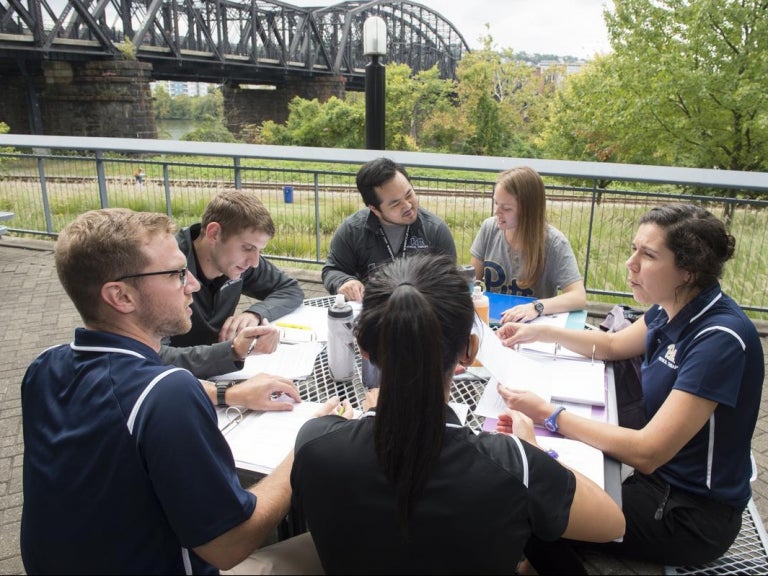
Graduate school is a time of excitement and significant professional growth that will propel you towards amazing professional career opportunities. However, life continues while completing the academic and clinical requirements of graduate study. There can be unforeseen hurdles and stressors that challenge your mental wellbeing as you navigate personal and professional responsibilities.
Whether preparing to transition to campus living or arranging to engage in online studies, here are a few suggestions to help you successfully navigate the ebbs and flows of graduate student life while maintaining a healthy state of mind.
1. Be familiar with the counseling options provided by the university. Whether living on campus or studying from a distance, the university provides a variety of services to students who may benefit from short-term counseling needs.
Check out the student services information posted by the university to learn more about specific options. Knowing there is support and how to access such resources may provide a level of comfort should it be needed.
In addition to the University Counseling Center, the website includes these resources for finding a therapist:
- ThrivingCampus is an online directory for Pitt students to access a list of off-campus, licensed mental health clinicians, who provide outpatient services for students. The website includes various guides and resources that assist students through the process of securing off-campus care. Click here to learn more about Thriving Campus.
- Psychology Today is another online directory resource that students can utilize to find mental health providers across the United States. Click here to visit Psychology Today.
2. If moving to campus, it is a good idea to know where the closest pharmacy is located if you have ongoing medication needs. While most universities have a student health clinic that may provide basic pharmaceutical support, not all student clinics are able to assist with obtaining prescription renewals or other services.
You may also find it helpful to have a discussion with the primary health provider overseeing any of your mental health or wellness needs. Share your pending plans for starting graduate school and discuss options for ongoing management throughout your new venture.
You may want to plan to continue any ongoing mental health services. This might involve finding a new therapist, seeing your current therapist via telehealth, or scheduling a few “check-in” appointments during the semester.
3. Know how to access your university’s disability resources. For individuals with a disability that affects their learning or assessment of learning, consider connecting with staff from the disability resources office to discuss options for support. Engagement with disability resources often results in the identification of accommodations that students can share with faculty to ensure that learning and assessment are able to occur in the manner that best supports the student. Whether challenged with text anxiety, ADHD, visual impairment or any other physical or mental challenge, the Office of Disability Resources at the University of Pittsburgh is committed to providing equal opportunities in higher education to academically qualified students with disabilities.
4. Remember the coping strategies you used to successfully address prior stress or anxiety “flare-ups” or “triggers.” Identifying prior strategies that assisted in regaining a healthy mental state (of being) during a particularly challenging period of your life is another way to prepare to balance responsibilities as a graduate student.
Getting organized for graduate studies also means setting up a plan for support. In the excitement of starting graduate school, it might not seem like a priority. However, should you become depleted of energy or struggle, it becomes even more difficult to navigate these simple steps. So get started today!
